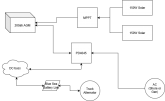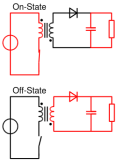I'm preparing to swap out my AGMs for LifePo4s and Updating all the sources for charging my batteries. I've upgraded my panels and added a Victron MPPT that supports LifePo4. I'm upgrading the Progressive Dynamics 4045 Might Mini so it will support LifePo4. Then I started wondering about how the batteries charge from the alternator.
Right now the battery is charged from a Blue Sea Systems BatteryLink Automatic Charging Relay. It seems that this just dumps power from the alternator to the DC system and doesn't really do much else. So I think I'll have to buy a DC/DC charger and I keep seeing isolated and non isolated DC/DC chargers.
What's the difference? How do I determine which one I should use?
Right now the battery is charged from a Blue Sea Systems BatteryLink Automatic Charging Relay. It seems that this just dumps power from the alternator to the DC system and doesn't really do much else. So I think I'll have to buy a DC/DC charger and I keep seeing isolated and non isolated DC/DC chargers.
What's the difference? How do I determine which one I should use?





